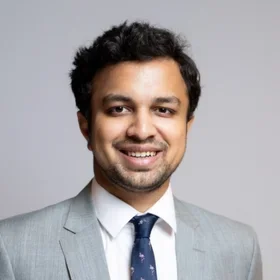Angela Yang (’16SPS, Sports Management) came to Columbia’s M.S. in Sports Management program with the goal of making a career pivot from banking to sports, specifically the Olympics, an organization she’s especially passionate about.
Now a partnership manager for International Olympic Committee (IOC) Television and Marketing Services, Angela is fulfilling her aspirations every day.
“I was very clear with my goal of working in the Olympic Movement,” said Angela. “The program really supported that ambition, introducing me to the right people and opportunities that eventually made my goal come to fruition.”
We recently spoke to Angela about her current role, DEI in sports, and the most valuable aspects of her time in the program.
#YourStory
Tell us about your current role.
As part of the International Olympic Committee services department, I work with companies selected as worldwide sponsors by the IOC as part of the Olympic Partner Program (TOP). That is the highest level of Olympic sponsorship, and the revenue funds the Olympic Movement globally. My partners span very distinct industries and countries. It’s been really interesting to see and learn from how they integrate and activate the Olympics in their own unique ways.
I oversee, manage, and nurture these relationships to ensure the partners’ contractual rights are met; strengthen the value proposition of the Olympic and Paralympic Movement; and grow the Movement together with our partners.
How are you working to promote inclusivity and create a more equitable sports landscape?
I joke that everywhere I’ve worked, I always tick off two boxes in the DEI checklist: Asian and female. Outside Asia, I would say Asians are not well represented in the sports industry, but there’s a growing group of us now. With more Asian athletes, brands, and cities interested in hosting major sports events, I think we bring so much to the table. I hope to educate people about the business landscapes in Asia and how to navigate the cultural differences. I try to be a bridge in everything that I do.
I’m also always open to chatting with current students, especially those with similar backgrounds, so I can support them as they navigate this space.
#YourColumbia
How did the program impact your career progression?
The program helped me gain in-depth knowledge of the sports business world and connect with the key players in a fast-track way.
How has the Columbia network supported your journey within the sports industry?
The network Columbia provides is invaluable. For example, I was lucky enough to be included in a shortlist created by the program to intern for the United States Olympic and Paralympic Committee [USOPC] CEO and eventually secured the role, beating out candidates from other top business schools. One of the first people the program connected me with later hired me at his agency, where I worked on Paralympic projects. I eventually used him as a reference for my current role at the IOC.
#YourCity
What was your experience living and studying in New York City?
New York City is a great launching pad for a sports career because there are opportunities available across all types of organizations, be it for a brand, property, agency—you name it.
In New York, you’re always meeting people from diverse backgrounds, and you’re continually introduced to new ideas. It can be overwhelming, but it was great to be exposed to that intensity and learn to embrace those opportunities.
#YourCurriculum
Columbia’s Sports Management program emphasizes ethics and leadership. How does your Columbia education guide your approach to decision-making?
One reason I wanted to work in sports and the Olympics is that I truly believe in the economic and social impact sports can have. The program’s focus on ethics, leadership, and purpose sets the fundamental principle in a lot that we do.
Athletes are at the center of what we do, and it was great that some of my fellow students were professional athletes who were able to share insights into what it was like competing at that level. What I learned from them now shapes how I approach a lot of decisions in my work. For example, when I was building an athlete roster for a client, I made sure we were representing the sports and the athletes in the right way and that we were treating a diverse range of athletes equitably. This translates to smart business decisions as well.
What is your advice to students?
Treasure the network around you, not just in regard to employers but also your classmates. Be a good teammate on group projects, and spend time getting to know your peers. They can be your biggest advocates when you’re job-searching (my first job out of Columbia was from the referral of a classmate), and many of them will grow to become leaders in the industry.
About the Program
The Columbia University M.S. in Sports Management program provides students with a comprehensive curriculum and access to sports industry practitioners and influencers. Students acquire skills in areas such as entrepreneurship and innovation, global sports management, facility and event management, and sports law and ethics.


